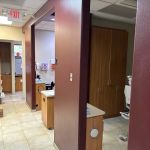How to Treat Sleep Apnea Without Surgery: Effective Alternatives to Consider
- Understanding Sleep Apnea and Its Impact on Health
- Common Non-Surgical Treatments for Sleep Apnea
- Lifestyle Changes That Can Improve Sleep Apnea Symptoms
- A Personal Story: Overcoming Sleep Apnea Without Surgery
- How to Start Treating Sleep Apnea Without Surgery Today
1. Understanding Sleep Apnea and Its Impact on Health
Sleep apnea is a common sleep disorder that causes breathing to stop and start repeatedly during sleep. The most common type, obstructive sleep apnea (OSA), occurs when the muscles at the back of the throat relax excessively, blocking the airways. This interruption in breathing can lead to poor sleep quality, leaving you feeling fatigued and increasing the risk of high blood pressure, heart disease, diabetes, and stroke.
Many people are unaware they have sleep apnea, as it often occurs during sleep. Symptoms can include loud snoring, choking, gasping for air during sleep, and excessive daytime sleepiness. Understanding the impact of sleep apnea on your health is the first step toward finding effective treatment options.
2. Common Non-Surgical Treatments for Sleep Apnea
While surgery is an option for severe cases of sleep apnea, there are several non-surgical treatments that can be equally effective. Here are some of the most common alternatives to surgery:
- Continuous Positive Airway Pressure (CPAP) Therapy: CPAP is the most widely used treatment for obstructive sleep apnea. It involves wearing a mask that delivers a continuous stream of air to keep the airways open while you sleep. While it may take some time to get used to, CPAP is highly effective for most people.
- BiPAP or APAP: For those who find CPAP uncomfortable, BiPAP (Bilevel Positive Airway Pressure) or APAP (Auto-Adjusting Positive Airway Pressure) devices are alternatives. These machines adjust the air pressure to fit your breathing patterns, providing a more tailored approach to treatment.
- Oral Appliances: Dental devices, or mandibular advancement devices (MADs), are designed to reposition the lower jaw to keep the airways open during sleep. These devices are a good option for people with mild to moderate sleep apnea and are often preferred by those who cannot tolerate CPAP therapy.
- Positional Therapy: Some people only experience sleep apnea when sleeping on their backs. In these cases, sleeping on your side can help prevent airway obstruction. Special pillows or devices are available to encourage side-sleeping and reduce symptoms.
3. Lifestyle Changes That Can Improve Sleep Apnea Symptoms
In addition to medical treatments, certain lifestyle changes can significantly improve sleep apnea symptoms. These changes not only enhance the quality of your sleep but can also reduce the severity of the condition. Here are a few lifestyle changes to consider:
- Weight Management: Excess weight, particularly around the neck area, can contribute to the obstruction of your airways during sleep. Maintaining a healthy weight through regular exercise and a balanced diet can reduce the severity of sleep apnea symptoms.
- Avoiding Alcohol and Sedatives: Alcohol and sedative medications relax the muscles in your throat, which can worsen the airway obstruction associated with sleep apnea. Reducing or eliminating these substances, particularly before bedtime, can improve your sleep quality.
- Quitting Smoking: Smoking irritates the airways, leading to inflammation and swelling that can exacerbate sleep apnea. Quitting smoking can improve lung and throat health and reduce sleep apnea symptoms over time.
- Regular Exercise: Exercise helps improve cardiovascular health, build muscle tone, and manage weight, all of which can reduce the severity of sleep apnea. Engaging in moderate-intensity aerobic exercise, such as walking, swimming, or cycling, can promote better sleep quality.
4. A Personal Story: Overcoming Sleep Apnea Without Surgery
Meet Sarah, a 45-year-old woman who struggled with sleep apnea for years. She found herself feeling tired throughout the day, despite getting enough sleep, and her partner often complained about her loud snoring. After visiting her doctor, Sarah was diagnosed with moderate obstructive sleep apnea and was advised to try CPAP therapy.
Initially, Sarah found the CPAP machine uncomfortable, but with time, she adjusted and noticed a dramatic improvement in her sleep quality. Along with the CPAP treatment, Sarah made some lifestyle changes, including losing weight and exercising regularly. Over time, Sarah's symptoms improved so much that she no longer needed to rely on the CPAP machine every night.
Sarah's story is a reminder that sleep apnea can often be managed effectively without surgery. Through a combination of medical treatments and lifestyle changes, many people experience significant relief from sleep apnea symptoms.
5. How to Start Treating Sleep Apnea Without Surgery Today
If you suspect that you have sleep apnea or have already been diagnosed, there are many non-surgical treatment options available to improve your quality of life. Whether you choose CPAP therapy, oral appliances, or lifestyle changes, taking proactive steps toward treatment can make a significant difference.
At Dentistry Toothtruth, we provide resources and products that can help you manage sleep apnea without the need for surgery. Click here to explore our latest products and learn more about how we can help you improve your sleep and overall health.







 Eagles Landing Dental Care4.0 (194 review)
Eagles Landing Dental Care4.0 (194 review) Arc Advanced Dentistry & Cosmetics3.0 (18 review)
Arc Advanced Dentistry & Cosmetics3.0 (18 review) Ponderosa Smiles; Rob D. Lyons D.D.S.5.0 (204 review)
Ponderosa Smiles; Rob D. Lyons D.D.S.5.0 (204 review) Ebrahimi Azita S DDS0.0 (0 review)
Ebrahimi Azita S DDS0.0 (0 review) Affordable Dental at Flamingo & Sandhill4.0 (421 review)
Affordable Dental at Flamingo & Sandhill4.0 (421 review) Dr. Dunn H. Cumby, DDS4.0 (14 review)
Dr. Dunn H. Cumby, DDS4.0 (14 review) The Importance of Oral Health Education During Pregnancy for a Healthy Pregnancy
The Importance of Oral Health Education During Pregnancy for a Healthy Pregnancy Best Tips for Brushing Your Teeth Properly for Healthy Gums: Essential Techniques for Oral Health
Best Tips for Brushing Your Teeth Properly for Healthy Gums: Essential Techniques for Oral Health Why Skipping Dental Checkups Can Lead to Bigger Oral Health Problems
Why Skipping Dental Checkups Can Lead to Bigger Oral Health Problems Advantages of Porcelain Dental Restorations
Advantages of Porcelain Dental Restorations How Can Diabetes Cause Tooth and Gum Problems? Preventing and Managing Oral Health Issues
How Can Diabetes Cause Tooth and Gum Problems? Preventing and Managing Oral Health Issues Healthy Habits for Promoting Good Oral Health and Hygiene: Tips for a Healthy Smile
Healthy Habits for Promoting Good Oral Health and Hygiene: Tips for a Healthy Smile